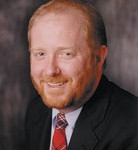 GOD’S INHERITANCE
GOD’S INHERITANCE
“For the Lord’s portion is His people; Jacob is the lot of His inheritance.” (Deuteronomy 32:9)
This verse brings before us a most blessed and wonderful line of truth, so wonderful that no human mind could possibly have invented it. It speaks of the mighty God having an “inheritance,” and it tells us that this inheritance is in His own people! God refused to take this world for His inheritance—it will yet be burnt up. Nor did heaven, populated with angels, satisfy His heart. In eternity past Jehovah said, by way of anticipation, “My delights were with the sons of men” (Proverbs 8:31).
This is by no means the only scripture which teaches that God’s inheritance is in His saints. In Psalm 135:4 we read, “For the Lord has chosen Jacob unto Himself, and Israel for His peculiar treasure.” In Mal. 3:17 the Lord speaks of His people as His “special treasure” (see margin)—so “special” that the highest manifestations of His love are made to them, the richest gifts of His hand are bestowed on them, the mansions on High are prepared and reserved for them!
The same wondrous truth is taught in the New Testament. In Ephesians 1 we behold the apostle Paul praying that God would give unto His people the spirit of wisdom and revelation in the knowledge of Him: the eyes of their understanding being enlightened that they might know “the hope to which he has called you, the riches of his glorious inheritance” (verse 18). This is a truly amazing expression; not only do the saints obtain an inheritance in God, but He also secures an inheritance in them! How overwhelming the thought that the great God should deem Himself the richer because of our faith, our love and worship! Surely this is one of the most marvelous truths revealed in Holy Writ—that God should pick up poor sinners and make them His “inheritance!” Yet so it is!
But what need has God of us? How can we possibly enrich Him? Does He not have everything-wisdom, power, grace and glory? All true, yet there is something that He needs, yes, needs, namely, vessels. Just as the sun needs the earth to shine upon, so God needs vessels to fill, vessels through which His glory may be reflected, vessels on which the riches of His grace may be lavished.
Mark that God’s people are not only called His “portion,” His “special treasure, but also His “inheritance.” This suggests three things. First, an “inheritance is obtained through death: so God’s inheritance is secured to Him through the death of His beloved Son. Second, an “inheritance” denotes perpetuity—”to a man and his heirs forever” are the terms often used. Third, an “inheritance” is for possession, it is something which is entered into, lived upon, enjoyed. Let us now consider five things about God’s inheritance:
1. God purposed to have such an inheritance. “Blessed is the nation whose God is the Lord; and the people whom he has chosen for his own inheritance” (Psalm 33:12). The “nation” here is identical with the holy nation,” the “chosen generation, royal priesthood, peculiar people” of 1 Peter 2:9. This favored people was chosen by God to be His inheritance: it was not an afterthought with Him, but decreed by Him in eternity past. Before the foundation of the world God fixed His heart upon having them for Himself.
2. God has purchased His people for an inheritance. In Ephesians 1:14 we are told that the Holy Spirit is the “pledge of our inheritance until the redemption of the purchased possession, unto the praise of His glory.” So again in Acts 20:28 we read of “the Church of God which He has purchased with His own blood.” God has not only redeemed His people from bondage and death—but for Himself.
3. God comes and dwells in the midst of His inheritance. “For the Lord will not cast off his people, neither will he forsake his inheritance” (Psalm 94:14) This is a clear proof that these scriptures are not referring to the nation of Israel after the flesh. Just as Jehovah tabernacled in the midst of the redeemed Hebrews, so He now indwells His church, both collectively and individually. “Don’t you know that you (plural) are the temple of God, and that the Spirit of God dwells in you?” (I Cor. 3:16). “Don’t you know that your body (singular) is the temple of the Holy Spirit?” (I Cor. 6:19).
4. God beautifies His inheritance. Just as a man who has inherited a house or an estate takes possession of it and then makes improvements, so God is now fitting His people for Himself. He who has begun a good work within His own is now performing it until the day of Jesus Christ (Phil. 1:6). He is now conforming us to the image of His Son. Each Christian can say with the Psalmist, “the Lord will perfect that which concerns me” (Psalm 138:8). Nor will God be satisfied until we have been glorified. The Lord Jesus Christ “shall change our vile body, that it may be fashioned like unto His glorious body!” (Phil. 3:21) “When he shall appear—we shall be like Him!” (I John 3:2)
5. And what of the future? God will yet possess, live upon, and enjoy His inheritance. In the unending ages yet to be, God will make known the “riches of his glory” on the vessels of His mercy (Romans 9:23). The glory which God shall ever live upon—as upon an inheritance—shall rise out of His people. What a marvelous statement is that which is found at the close of Ephesians 2, where the saints are likened unto a building “fitly framed together (which) grows unto a holy temple in the Lord,” of whom it is said, “in whom you also are built together for an habitation of God through the Spirit.”
Wonderful and glorious is the picture presented before us in Revelation 21:1-4: “Then I saw a new heaven and a new earth, for the old heaven and the old earth had disappeared. And the sea was also gone. And I saw the holy city, the new Jerusalem, coming down from God out of heaven like a beautiful bride prepared for her husband. I heard a loud shout from the throne, saying, “Look, the home of God is now among his people! He will live with them, and they will be his people. God himself will be with them. He will remove all of their sorrows, and there will be no more death or sorrow or crying or pain. For the old world and its evils are gone forever.”
What a marvelous statement is that in Zephaniah 3:17: “The Lord your God is with you, He is mighty to save. He will take great delight in you, He will quiet you with his love, He will rejoice over you with singing.” The great God will yet say, “I am satisfied: here will I rest. This is My inheritance that I will live upon forever, even the glory which I have bestowed on redeemed sinners.” Surely we have to say with the Psalmist, ” Such knowledge is too wonderful for me—too great for me to know!” (139:6). May Divine grace enable us to walk worthy of our high calling.


 GOD’S INHERITANCE
GOD’S INHERITANCE I asked the Lord that I might grow
I asked the Lord that I might grow